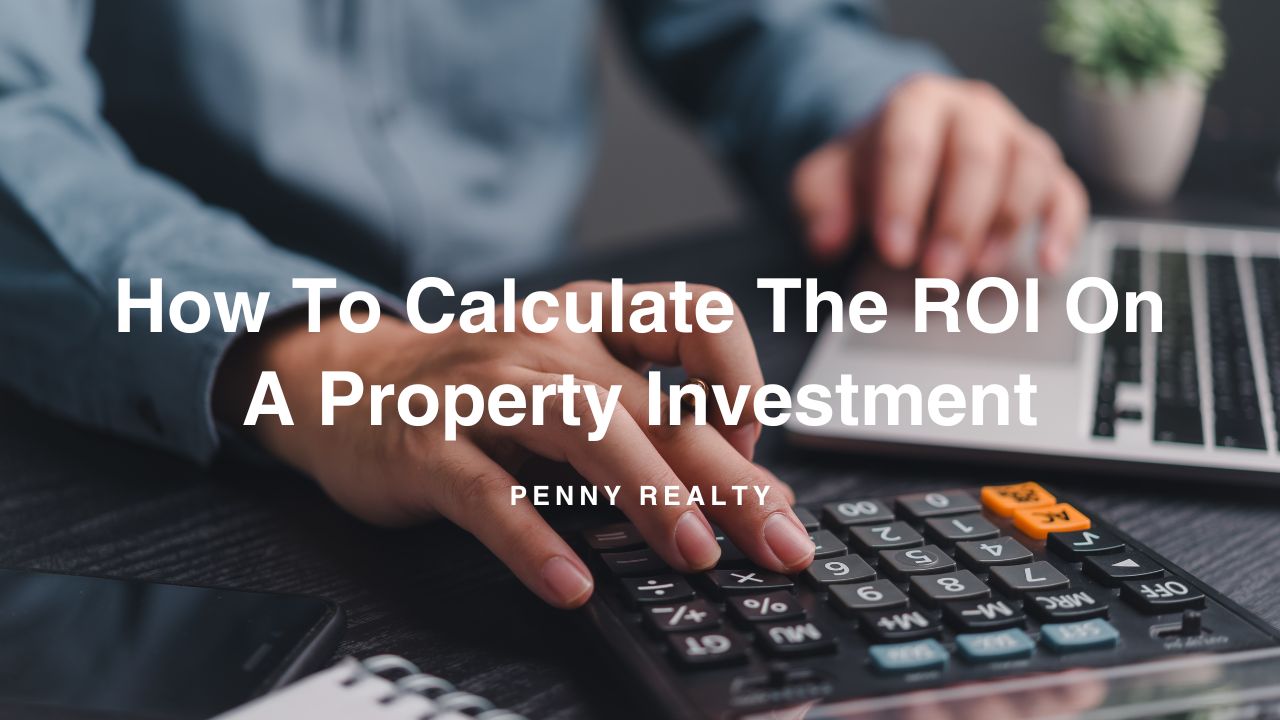Key Takeaways
What is ROI?: ROI measures the profitability of a rental property by comparing income to total investment.
Key Factors Affecting ROI: Cash flow, mortgage payments, and property appreciation all impact overall returns.
Maximizing ROI: Using ROI calculators and hiring a property manager can improve efficiency and profitability.
Have you ever wondered if the property you invested in is truly delivering the returns you expected? Many landlords face this exact question, especially when juggling day-to-day responsibilities of managing a rental property.
Understanding how to calculate the return on investment (ROI) is not just about crunching numbers, it’s about gaining clarity on whether your property is working for you financially.
Knowing your ROI helps you make smarter decisions, from setting rental rates to planning future investments. As a landlord, you deserve to have a clear picture of your property’s financial performance.
At Penny Realty, Inc. Property Management in San Diego, we know that successful property ownership starts with understanding the numbers behind the investment.
What Is ROI and How It Matter for Landlords
ROI, or Return on Investment, is simply a way to measure how profitable your rental property is compared to how much you’ve put into it. For San Diego landlords, where property values and rental rates can vary neighborhood by neighborhood, knowing your ROI is key to making sure your property is working in your favor.
ROI gives you a clear picture of whether your investment is worth it, helps you identify areas to improve profitability, and allows you to compare different properties side by side.
Without knowing your ROI, it becomes difficult to make confident decisions about rent pricing, repairs, or even expanding your portfolio. In short, ROI is your financial check-in, making sure you’re headed in the right direction with your property.
How to Calculate ROI on a Rental Property
Calculating ROI might sound technical at first, but it becomes simple when you break it down. In its basic form, the ROI formula is:
ROI = (Annual Net Profit ÷ Total Investment) x 100
Your annual net profit is the rental income you collect in a year after subtracting all expenses related to the property. Your total investment includes your down payment, closing costs, and any upfront repairs you made when acquiring the property.
For example, if you invested $100,000 into a San Diego rental property and your net profit for the year is $10,000, your ROI would be 10%. This percentage shows you how much you’re earning compared to what you’ve invested, giving you a practical way to assess performance.
Expenses and Net Operating Income (NOI)
Before you can confidently calculate ROI, you need to fully understand your property’s operating expenses and how they affect your Net Operating Income (NOI).
Common operating expenses for San Diego landlords include property taxes, insurance, maintenance tasks, utilities (if you cover any), repairs, and property management fees if you hire a professional service like Penny Realty, Inc. Property Management.
Subtracting these expenses from your rental income gives you the NOI. Remember, NOI does not include mortgage payments, but it tells you how much the property generates from its operations alone. Getting this number right is important, as it forms the foundation of your ROI calculation.
Factoring in Property Appreciation and Equity Gains
San Diego landlords benefit from a real estate market where property appreciation plays a big role in overall returns. Appreciation is the increase in your property’s value over time, and while it is not part of your annual cash flow, it is essential to factor into your long-term ROI.
Additionally, every mortgage payment you make builds equity, increasing your ownership stake in the property. When you eventually sell or refinance, these equity gains and property appreciation combine to give you a much higher overall return than just the rental income alone.
By including these factors, you get a clearer picture of the true value your property is building over the years.
Common Mistakes Landlords Make When Calculating ROI
Even experienced landlords sometimes make errors when calculating ROI, which can lead to misleading results and poor decision-making.
Being aware of these common mistakes helps you avoid costly missteps:
Ignoring all Expenses: Some landlords only subtract major expenses like mortgage payments or property taxes, but forget to include smaller but regular costs like repairs, insurance, or property management fees.
Overestimating Rental Income: It's common to calculate ROI based on the ideal rental rate without considering rental vacancies, seasonal dips, or market changes common in areas like San Diego.
Forgetting Maintenance and Improvements: Ongoing maintenance and major repairs such as roof replacements or appliance upgrades directly affect profitability and should always be included in calculations.
Excluding Appreciation and Equity: Focusing only on annual cash flow might make an investment look less profitable than it actually is. Long-term gains from appreciation and equity growth are essential parts of ROI.
Misjudging Property Value: Using outdated or inflated property values when calculating ROI can distort results. Always base your numbers on current market conditions.
When Should You Reevaluate Your Property’s ROI?
Reevaluating your property’s ROI isn’t something you do just once; it should be a routine part of managing a rental investment, especially in a market like San Diego where trends shift regularly. You should revisit your ROI annually to keep track of performance and spot any changes early.
It’s also smart to reassess your ROI after significant events, like completing major renovations, adjusting rent prices, facing extended vacancy periods, or experiencing market changes such as shifts in property values or tax rates.
By staying on top of your ROI, you can make timely decisions, whether it’s improving the property, adjusting rental strategies, or even considering the sale of an underperforming investment.
Bottom Line
Calculating ROI is not just about crunching numbers, it’s about making smarter decisions for your rental business. Penny Realty, Inc. Property Management in San Diego can help you not only understand your property’s performance but also identify ways to boost returns.
Whether you need guidance on rental rates, expense management, or long-term investment strategies, our team is ready to help you make the most of your property. Reach out today to discuss your options.



